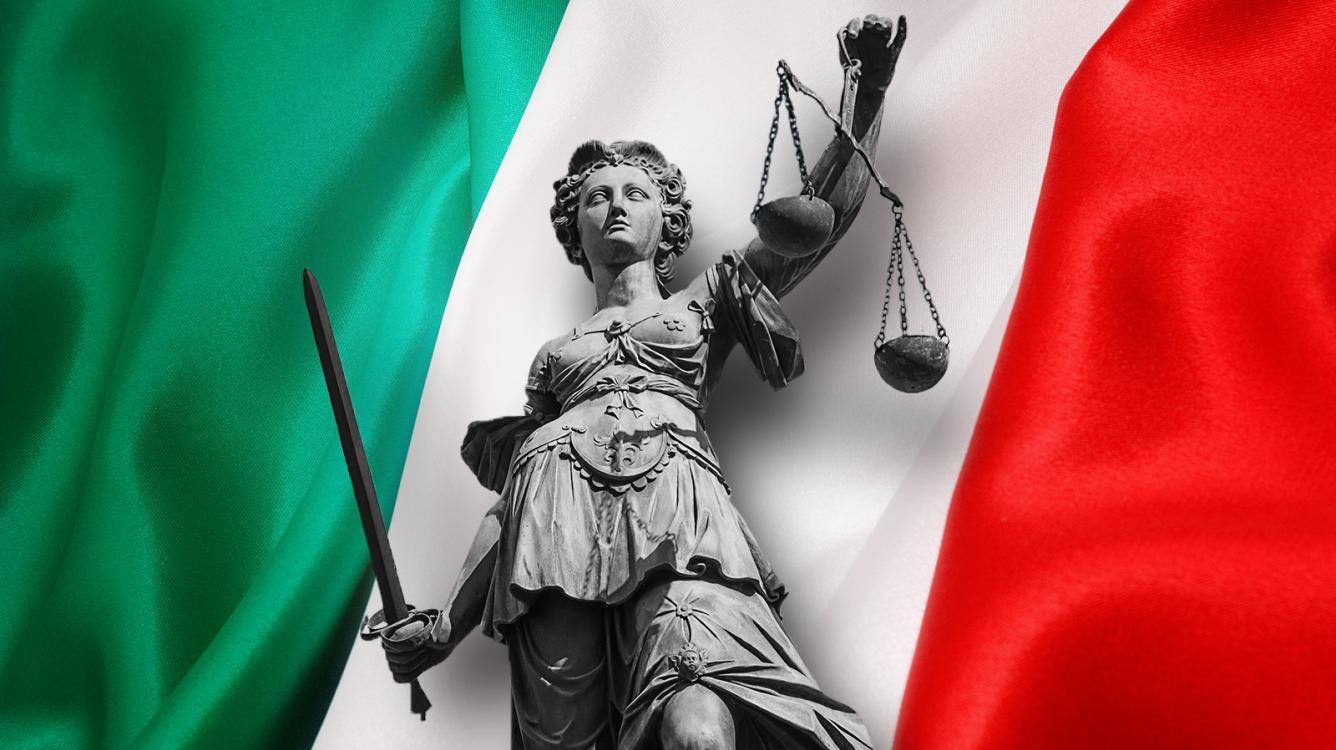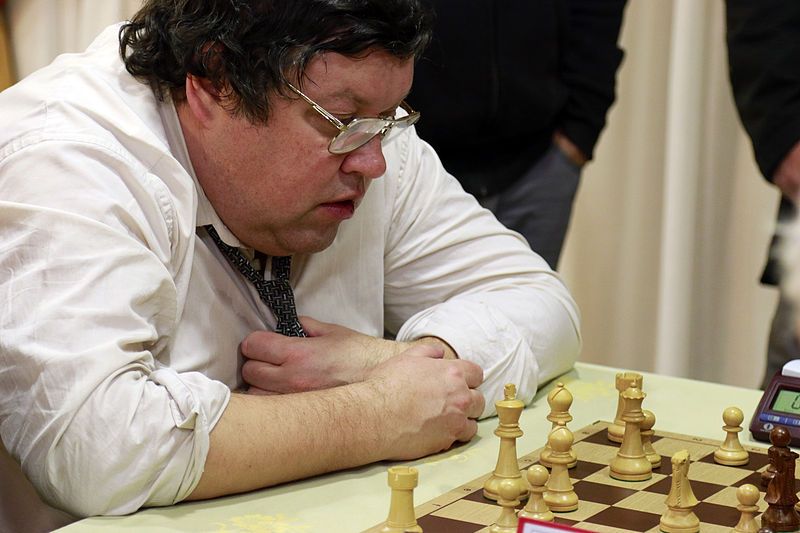
Players Suspended In Italian Cheating Scandal
Three players received suspensions by an Italian federal court after an investigation regarding alleged attempt at rigging games and manipulate results at the Montebelluna tournament in January of this year. The story has had a deep impact on the Italian chess scene.
When you hear the term match fixing, usually the story is about football. As it turns out, chess is not immune either to such malpractices, and the term "cheating in chess" might need a broader definition.
Last Saturday the Federal Court of First Instance of the Italian Chess Federation ruled that four players have violated the Rules of Justice and Discipline of the Italian Chess Federation, mostly for behavior at the Montebelluna chess festival in January 2017.
The court ruled that there was enough evidence that attempts to throw games had taken place in Montebelluna, a festival with several events including closed IM and GM tournaments. "The principles of loyalty and fairness were violated," stated the court.
- The 52-year-old Russian grandmaster GM Igor Naumkin (who lives in Italy) received a six-month suspension for trying to manipulate a game in Montebelluna. According to the 22-page document provided by the court (here in PDF), Naumkin had offered an opponent victory in exchange for 200 euros. His opponent refused.
- The 32-year-old IM Angelo Damia was suspended for seven months for an attempt to lose a game in exchange for money in a rapid tournament in 2013 (his opponent also refused).
- The 19-year-old IM Pier Luigi Basso was suspended from competitive play for five months not for an unlawful act or an attempt, but for shameful behavior in public and private statements.
- The 24-year-old IM Andrea Stella, who scored a GM norm in Montebelluna, was not suspended but received a discommendation; he was reprimanded for rude behavior in a private chat with a friend on Facebook. [See also our update below the article.]
- The 63-year-old Croatian IM Milan Mrdja was also a subject of the investigation, as some of his losses were seen as suspicious by some, but he was found not guilty.

GM Igor Naumkin. | Photo: Giordano Macellari/Wikipedia.
Facebook chats showed that Basso, who co-organized the tournament, attempted to manipulate results. He bragged about "being part of the dark side of chess" and stated elsewhere: "There is a strong temptation to accept if you say 100 euros for a point at the Italian Championship. Few would resist; you know it well."
Stella has been found saying: "Maybe with 600 you make 2.5 out of 3, and you have another one to play for 50 euros more. If not maybe 450 for 2 out of 3, that's 100 less. It's always possibility to negotiate."
The court, which ruled out that this was "about hotel rates," wasn't satisfied with the defense by the players, who claimed that the chats had taken place "after midnight" and were "just a joke."
Although his behavior was condemned by the court, Stella only received a reprimand and not a suspension because there was no evidence that the proposal was carried forward:
[T]he element of suitability of the eventual attempt is missing, there being no evidence to the acts that Stella has actually discussed with Basso or another organizer of the Montebelluna event the possibility of guaranteeing Trasciatti a certain number of points behind some compensation. Only if it was proven this next event or if at least Stella had told Trasciatti that he had agreed with Basso or another organizer the purchase of points in favor of Trasciatti we could talk about an attempt, that is, an act capable of committing an infringement, not having Stella, alone, the ability to alter the involvement of the tournament in which Trasciatti would participate. But since all this in the records does not appear to have ever happened, Stella cannot be considered responsible for the attempt to alter the conduct of a tournament."
Rumors about matchfixing had existed for years in the Italian chess scene, and the results in the Montebelluna tournament were the proverbial last straw. In February of this year a group of top players, including GMs Sabino Brunello, Danyyil Dvirnyy, Michele Godena and Daniele Vocaturo, wrote an open letter (here in PDF) to the Italian Chess Federation, the Federal Court and "all Italian chess players." The players expressed their worry about widespread corruption and noted that any form of matchfixing should not be tolerated.
No names were mentioned in the letter, which includes the sentence: "It is of utmost importance to act with determination at all levels to isolate the apples before they contaminate the entire basket."
It was clear that the players had the Montebelluna festival in mind, where no fewer than 11 norms were achieved.
After the publication of this letter, the federal court started its investigation. Some players started to collect evidence, and eventually dozens of witnesses were heard and many documents, text messages and chat conversations were investigated.
The verdict was published last Saturday afternoon. No evidence was found that games had actually been rigged in Montebelluna, but the attempts to do so were enough for the court to suspend the players.
According to sources talking to Chess.com, the Montebelluna scandal is not the whole story. The federal prosecutor wrote something similar: "It is a spontaneous but widespread revolt in the chess world against what was initially only an occasional malcontent; but that, in recent years, has unfortunately become a widespread and constant illegal practice in Italy."
In a reaction to the news, grandmaster Sabino Brunello told Chess.com: "The Montebelluna verdict is a partial victory for the accusing side. The jury pointed out absolutely shameful behaviour by Basso, Stella, Naumkin and Damia. However, the jury ruled against the main charge (heavily arranging a GM-norm tournament), since it was considered that Basso's alleged written confession was barely an act to appear as a criminal.
"All in all, however, the sentences are relatively light, with a maximum of seven months suspension from taking part in chess tournaments. This story is still in progress, since it seems reasonable to me that all sides will appeal to different chapters of the ruling."
All four convicted players have denied the allegations. They have 15 days to file an appeal.
Update 4 May 2018:
In its ruling in February of this year (here in PDF), the Italian Court of Appeal's confirmed the conclusion of the original court, and ruled out that the Montebelluna tournament had been altered in order to allow Stella to achieve the necessary score for the grandmaster norm. About the games between Stella and Mrdja, the court wrote:
"Generic and malicious rumors from the public are surely no evidence. (...) The only real proof is the deposition of the referee Renier alerted before the tournament in which he declares: 'I have followed closely the most suspicious matches but I have never been able to grasp elements that give me the certainty or even a very serious suspected of manipulation.' It is clearly a proof for the defence that shines in the total lack of evidence."
Correction, 4 May 2018: an earlier version of this article erroneously stated that four chess players had been convicted for their involvement in rigging games (...). However, the court spoke of attempt at doing so, and only three players received suspensions: Naumkin, Damia and Basso.


